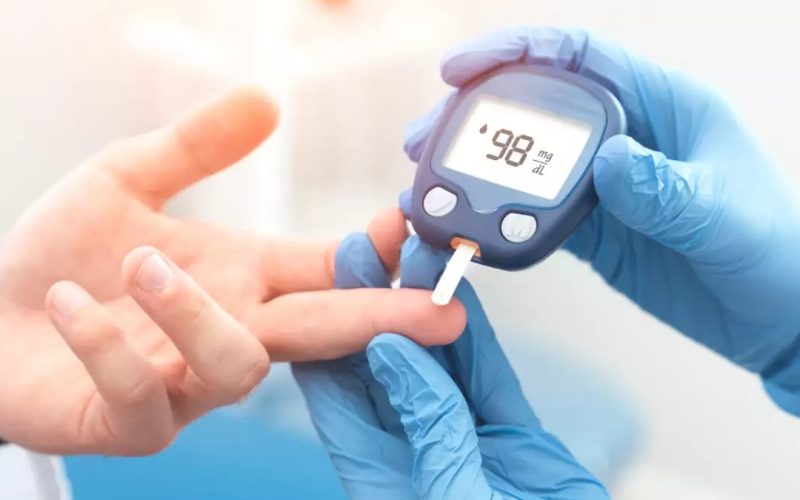Introduction
Diabetes is a silent condition that affects millions worldwide, including a significant number of people in Hyderabad. Often, it progresses without obvious symptoms, which makes regular screening essential. Detecting diabetes early can prevent serious complications such as heart disease, kidney damage, vision problems, and nerve issues. Leading diabetologists in Hyderabad emphasize that routine health checks, proper monitoring, and early interventions can save lives and improve quality of life. In this article, we explore why regular screening matters, who should be tested, recommended tests, and practical advice to stay healthy.
Understanding Diabetes
Diabetes is a metabolic disorder in which the body cannot properly regulate blood sugar levels. There are two main types:
- Type 1 Diabetes: Usually develops in childhood or early adulthood. The body cannot produce insulin.
- Type 2 Diabetes: More common in adults, often linked to lifestyle factors. The body either resists insulin or does not produce enough.
Both types can lead to serious complications if left untreated, which makes early detection through screening crucial.
Why Regular Screening Matters
Regular screening allows for early detection, management, and prevention of complications. Here are the key reasons:
1. Early Detection of Diabetes
Many people may have high blood sugar without symptoms. Screening helps identify hyperglycemia before complications develop, allowing timely treatment and lifestyle adjustments.
2. Prevention of Complications
High blood sugar over time can damage organs and nerves. Early detection reduces the risk of heart disease, kidney failure, blindness, and neuropathy.
3. Monitoring Pre-Diabetes
Screening can detect pre-diabetes, a condition where blood sugar is higher than normal but not yet diabetic. Lifestyle changes at this stage can prevent progression to full diabetes.
4. Better Management of Existing Diabetes
For people already diagnosed, regular screening helps monitor the effectiveness of medications, diet, and exercise routines, ensuring better long-term health outcomes.
5. Awareness and Education
Screening creates awareness of risk factors, helping individuals make informed decisions about diet, exercise, and routine health checks.
Who Should Get Screened?
Diabetologists in Hyderabad recommend screening for the following groups:
- Adults over 35: Age increases risk of Type 2 diabetes.
- Overweight or Obese Individuals: Extra weight increases insulin resistance.
- Family History of Diabetes: Genetics plays a role in susceptibility.
- People with High Blood Pressure or Cholesterol: These conditions increase the risk of Type 2 diabetes.
- Pregnant Women: Gestational diabetes can develop during pregnancy.
- Individuals with Sedentary Lifestyles: Lack of physical activity raises diabetes risk.
Even if you feel healthy, routine screening is important because diabetes can develop silently.
Recommended Screening Tests
Leading diabetologists suggest the following tests to detect and monitor hyperglycemia:
1. Fasting Blood Sugar (FBS)
Measures blood sugar after at least 8 hours of fasting. A normal level is below 100 mg/dL.
2. Oral Glucose Tolerance Test (OGTT)
Checks blood sugar before and after consuming a sugary drink. This test helps detect impaired glucose tolerance.
3. HbA1c Test
Shows average blood sugar levels over the past 2–3 months. An HbA1c below 5.7% is normal, 5.7–6.4% indicates pre-diabetes, and 6.5% or higher indicates diabetes.
4. Random Blood Sugar Test
Measures blood sugar at any time, useful for quick assessment, especially if symptoms are present.
5. Lipid Profile and Kidney Function Tests
Screening for cholesterol and kidney health helps identify complications early.
How Often Should Screening Be Done?
Frequency depends on age, risk factors, and health status:
- Adults over 35 without risk factors: Every 3 years.
- Adults with risk factors: Annually or as recommended by a doctor.
- Pregnant women: Screening during the second trimester for gestational diabetes.
- People with pre-diabetes: More frequent checks, usually every 6–12 months.
Regular monitoring ensures early intervention and better control over the condition.
Lifestyle Measures to Support Screening Efforts
Screening is most effective when paired with healthy lifestyle habits:
1. Balanced Diet
- Focus on whole grains, vegetables, fruits, lean proteins, and healthy fats.
- Limit sugary foods and beverages.
- Monitor portion sizes to maintain a healthy weight.
2. Regular Physical Activity
- At least 150 minutes of moderate exercise per week, such as walking, cycling, or swimming.
- Include strength training exercises to improve insulin sensitivity.
3. Weight Management
Maintaining a healthy weight reduces the risk of Type 2 hyperglycemia and improves blood sugar control for those already diagnosed.
4. Stress Management
High stress can increase blood sugar levels. Practices like yoga, meditation, and deep breathing can help.
5. Avoid Smoking and Limit Alcohol
Both smoking and excessive alcohol consumption increase the risk of diabetes and its complications.
Special Considerations for Hyderabad Residents
Hyderabad has a growing prevalence of diabetes, often linked to urban lifestyles and diet. Leading diabetologists in the city emphasize:
- Early and Regular Screening: Even individuals without symptoms should undergo annual health checks.
- Community Awareness Programs: Local campaigns promote awareness about diabetes and encourage preventive screenings.
- Access to Specialized Clinics: Hyderabad has well-equipped diabetic clinics offering comprehensive care, including diet consultation, exercise programs, and regular monitoring.
Importance of Professional Guidance
Self-monitoring is helpful, but professional guidance is essential:
- Customized Screening Plans: Doctors can recommend the most suitable tests based on age, health status, and risk factors.
- Interpreting Results: Professionals provide accurate interpretation and advice on lifestyle changes, medications, or further investigations.
- Early Intervention: Prompt action from specialists can prevent serious complications and improve long-term outcomes.
Conclusion
Regular diabetes screening is a vital step toward maintaining long-term health, particularly in Hyderabad, where lifestyle and dietary factors increase risk. Early detection through fasting blood sugar, HbA1c, and other recommended tests allows timely interventions, reducing the risk of serious complications. Combining regular screening with a balanced diet, physical activity, stress management, and professional guidance ensures optimal prevention and management. Leading diabetologists emphasize that even healthy-looking individuals should not skip routine checks, as proactive screening can protect health, enhance quality of life, and help individuals live longer, healthier lives.











